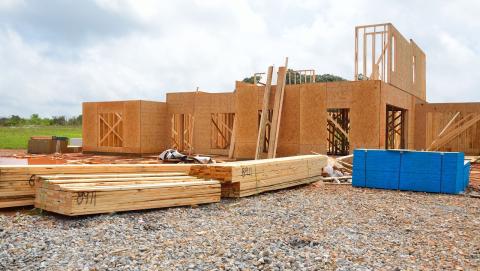
Bill 185, Cutting Red Tape to Build More Homes Act, 2024
Today the Government introduced Bill 185, the Cutting Red Tape to Build More Homes Act. This omnibus bill includes changes to a range of legislation including changes to development charges and Ontario’s land-use planning framework with the stated intent of removing barriers to building 1.5 million homes by 2031.
Changes to Development Charges
In response to AMO advocacy, Bill 185 would make significant steps towards restoring municipalities’ ability to fund growth-related infrastructure by:
- repealing the five-year phase-in of development charges introduced under Bill 23, and
- restoring studies as eligible development charge costs.
The bill moves forward with development charge exemptions for affordable units, with a commitment to release a bulletin by June providing necessary implementation information. AMO has supported these exemptions following the inclusion of income criteria in the definition of affordable.
AMO will continue to highlight the need to reinstate both housing services and the cost of land as eligible DC costs. Together, these changes are costing municipalities around $4 billion over a 10-year period and will have a material impact on municipalities’ ability to invest in community housing.
AMO recognizes that that these changes are the result of a renewed approach to collaboration between the province and municipalities. The proposed changes make progress in walking back elements of Bill 23 that significantly undermined municipalities’ ability to support housing. They do not, however, replace the need for a comprehensive conversation to update the provincial-municipal fiscal framework to support sustainability, affordability and economic prosperity.
Minister’s Zoning Orders
Bill 185 would replace the Community Infrastructure and Housing Accelerator (CHIA) tool with a new Minister’s Zoning Order (MZO) framework that requires:
- Demonstration of how infrastructure servicing will be addressed;
- Anticipated timelines for downstream approvals and project completion;
- Evidence that they deliver on a provincial priority or are supported by a single-tier or lower-tier municipality.
The new MZO framework takes steps towards improving transparency, but fall short of AMO’s recommendations that the government:
- use MZOs only in collaboration with municipalities
- use MZOs only in situations of extraordinary urgency, and
- enshrine this requirement in legislation
Land-Use Planning Changes
Bill 185 includes a number of changes intended to streamline planning processes and speed up housing development, including:
- Allowing municipalities to reallocate infrastructure servicing allocations from stalled developments to ready-to-build ones in order to better support growth
- Removing the planning application fee refund framework introduced through 2022’s Bill 109
- Exempting public universities from planning approvals to facilitate faster construction of student residences.
- Limiting third-party appeals for approved Official Plans and Zoning By-laws
- Authorities needed to move forward with removing planning authorities from seven upper-tier municipalities
Along with these measures, the government is introducing the next edition of the Building Code and will be sharing an updated draft of the next Provincial Planning Statement (PPS) for a 30-day consultation.
AMO calls on the province to support effective implementation of measures by limiting future changes to the land-use planning process and restoring stability and certainty to the system.
Other Items
Bill 185 also proposes to streamline the anti-bonusing exemptions process by providing the Lieutenant Governor in Council the authority to allow municipalities to grant direct or indirect assistance to specific types of businesses, subject to certain conditions.
Bill 185 makes changes to the Hazel McCallion Act (Peel Dissolution) which would require the transition board to provide recommendations on the transfer of powers, responsibility or jurisdiction from Peel Region with respect to land use planning, water and wastewater, storm water, highways and waste management. AMO will continue to monitor the work of the Peel Transition Board to identify any policy recommendations that may impact municipalities in the future.



